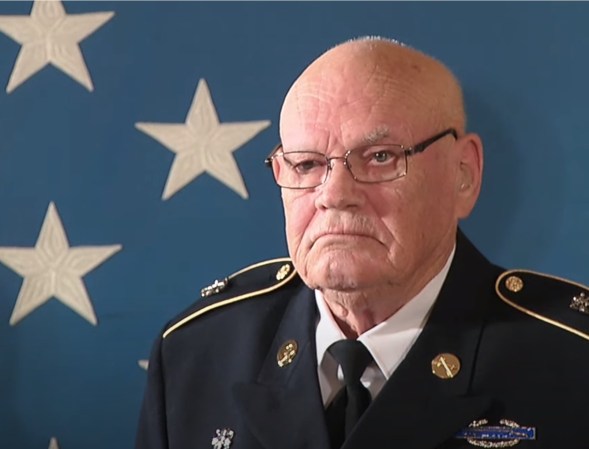Medal of Honor recipient Master Sgt. Ron Rosser served for three years in the post-World War II Army in Japan and Germany and then reenlisted in June 1951 with a single purpose in mind: revenge for the death of his younger brother Richard, who was killed in action in Korea.
Rosser was sent first to Japan. He then volunteered for combat and fought with his command to get a place at the front, eventually landing a spot with Company L, 38th Infantry Regiment, 2nd Infantry Division.
In an oral history recording for Arlington National Cemetery, Rosser said that Big Army couldn’t understand his motivation for demanding to go to Korea. “I made up my mind that you can’t kill my brother and get away with it,” Rosser said.

Company L participated in both Bloody Ridge and the Battle of Heartbreak Ridge. Bloody Ridge lasted over three weeks, and there were an estimated 2,7000 casualties. The Battle of Heartbreak Ridge was a month-long battle in the Korean War and was one of several major engagements in the hills of North Korea, just a few miles north of the 38th Parallel.
Then, Company L was ordered to take a hill occupied by the Red Army near the town of Ponggilli. Rosser reports that he estimated at least three battalions on the hill, all in heavily fortified positions. The battle began with only 170 men from Company L. Shortly after maneuvers began, the temperature dropped to 20 degrees below zero.
The Red Army was completely dug in, and they had the advantage. Rosser gave his radio to another soldier and decided to charge alone to the Red Army front line. He stopped at an outcropping to assess the situation.
Recorded as part of the oral history for Arlington, Rosser said that he considered how much trouble he’d been through to reach that point and that there was no use wasting the day. “I let out a war whoop and jumped in the trench. I just charged straight into them,” he said.
Rosser was armed with only a carbine and a grenade, a fact that’s noted on his Medal of Honor citation. He gained the top of the kill, killed two enemy soldiers, and then went back into the trench. He killed five more enemies as he advanced, often relying on hand-to-hand combat at times.
But Rosser kept advancing, sometimes relying on his rifle as a club. When he ran out of ammunition, he returned to his position to reload. Rosser said that all he was trying to do was protect the men he was responsible for in his unit. He worried that if he didn’t attack, the Red Army would charge down the hill and decimate Company L.
Of the 170 soldiers in the unit, 90 were killed, 12 were captured, and 68 wounded. As Company L retreated, the Red Army didn’t fire any shots at them.
On his Medal of Honor citation, it states that he killed “at least 13 enemy,” but Rosser counts the number as more than 40.
“The purpose of me doing all that crazy stuff was trying to stop them,” he said in the oral history.
Rosser was awarded the Medal of Honor in a June 1952 ceremony at the Rose Garden in the White House. After President Truman read the citation, he turned to Rosser and said, “Personally I’d rather have [the medal] than be president.”

Once pinned, someone told Rosser that now not only did all officers have to salute him, but so too did the president. He was sure someone was pulling a fast one on him. While not an official regulation, it’s a time-honored custom that shows respect, whether or not the Medal of Honor recipient is in uniform.
Rosser was in the Army until 1968. He repeatedly volunteered several times for combat following the death of another brother, who was killed in action in Vietnam. The Army denied Rosser’s request for combat. He retired as a Sgt. First Class but was later promoted to Master Sgt.
Of being a Medal of Honor recipient, Rosser said it could have been awarded to anyone he served with. “I didn’t do anything they didn’t do. I was just lucky enough to survive it.”


























